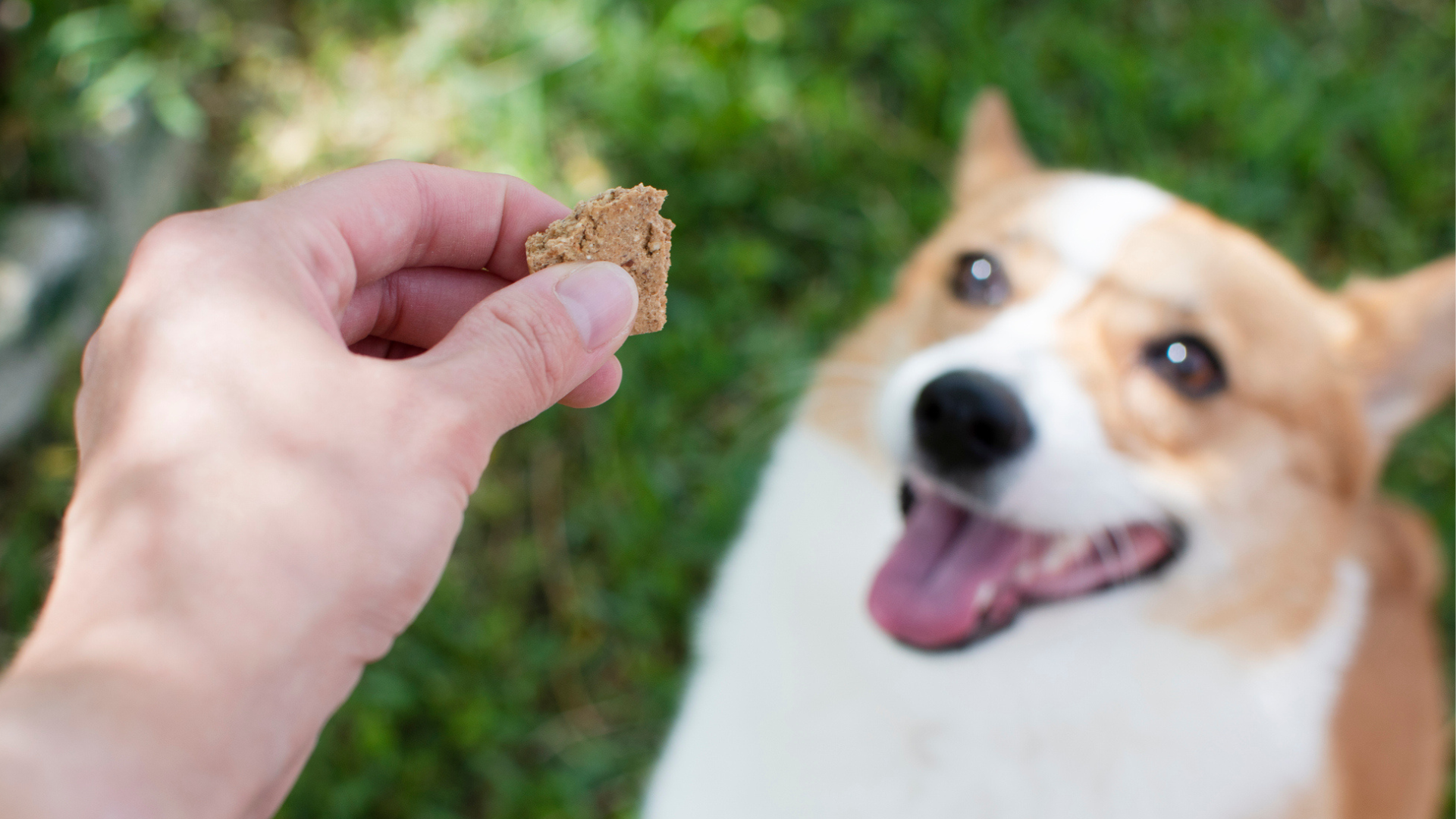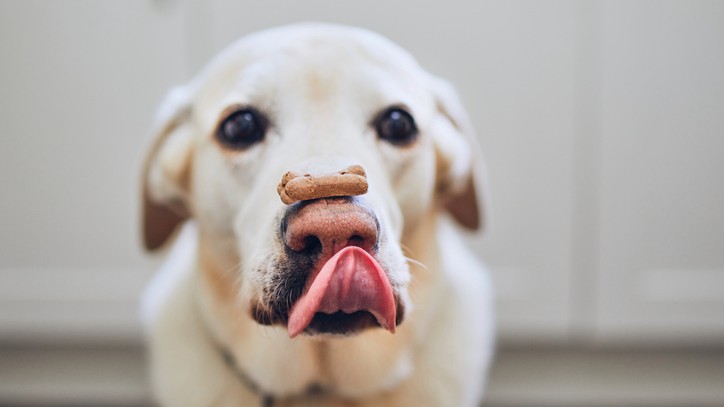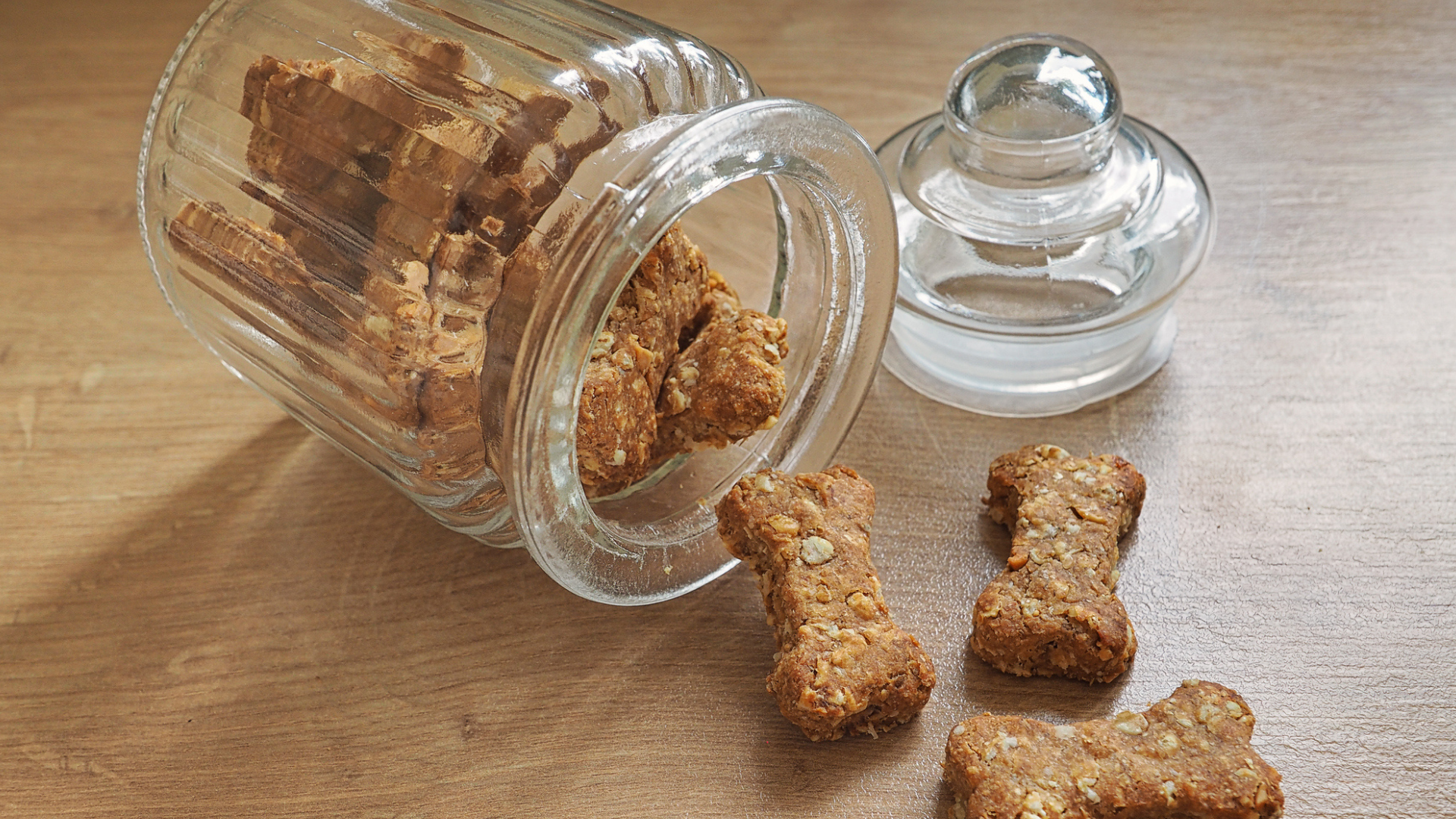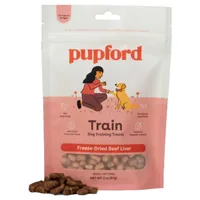Do dog treats expire? How long to keep dog treats in your cupboard
We answer the common question, ‘Do dog treats expire?’

Do dog treats expire? Unlike dog food that spoils quite quickly (and obviously), it’s slightly harder to tell if treats have gone bad – aside from looking a little stale. This might leave you wondering whether they’re safe or not to feed your dog and whether it poses any risk to their health.
We don’t know about you, but in our house, the best dog treats never stick around for long. However, if you find an old packet lingering about, or are hoping to stock the cupboards up in advance, it’s a good idea to know how long they last. The last thing you want is for your dog to feel unwell!
Whilst an expired dog treat probably won’t cause any serious health issues, there are some things to keep in mind before feeding them to your dog, like the ingredients and how old they are.
Below, we’ve answered the most common questions about dog treats – from how long you should keep them for to whether expired treats can make your dog sick. We’ve also shared advice on how to store them properly and whether the same rules apply for homemade dog treats.
Do dog treats expire?
Just like human food products, dog treats do indeed have any expiration date. You should find this printed somewhere on the packet of any store-bought treats, but you’ll usually find that most dog treats have a pretty long shelf life.
If you’re buying a lot of treats at once to stock your cupboards, it’s worth keeping a close eye on the expiration dates to make sure that they will last, but if you’re the type to just chuck in a packet of treats as you do the weekly grocery shop, it should be less of an issue.
If you’ve found a bag of old treats at the back of the cupboard, take a quick look at the expiry date before opening the packet.
Get the best advice, tips and top tech for your beloved Pets

Do milk-bone treats expire?
A popular type of treat are Milk Bones. You should find that even this type of treat lasts a long time - with an average shelf life after purchase of about a year - 18 months.
Just like with other treats, you can check the expiry date as printed on the packet to make sure the product is still in date.
Can dog treats go bad?
This will largely depend on the composition of the treat itself - those with fresher or meat / dairy type composition will typically have a shorter shelf life than those which mainly consist of grains and so on.
It can be hard to tell if a dog treat has gone bad since they don’t typically smell that great in the first place, but, if you’ve used the treats before you should know roughly what they smell, look and feel like - if everything seems normal, they probably are.
You should be able to use your own judgement when it comes to the expiry date - if it’s a few days then it’s unlikely to cause any problems, but if it’s a long way out - such as a few months - and you’re in any way concerned, it might be better to throw them out.

Do dog treats go stale and taste bad?
Although dog treats that have expired are unlikely to be hugely problematic for your dog, you might find that expired treats have gone stale and are therefore not hugely tasty for your dog.
Again, this will depend on the type of dog you have - if you have a greedy pup that will gobble up anything, it might be worth keeping hold of the treats, but if you have one that is a bit fussier and you notice that they’re rejecting the treats, there’s not much point in persisting with them.
Can expired dog treats cause diarrhea or make my pet ill?
There’s no definite answer to this, as it will of course vary from dog to dog. Those who have sensitive tummies or perhaps have allergies should probably avoid expired dog treats just to be on the safe side.
Most expired dog treats are unlikely to cause health problems for your dog, especially if the expiration date is relatively close. If you find that your dog has become ill after eating some expired treats keep a close eye on them - a slightly upset stomach is rarely something to get overly concerned about.
Always talk to a vet if you’re particularly worried or your dog’s condition worsens - and have information (such as the packet) about the treats ready for them.

How long should I keep dog treats for?
You can keep most store-bought dog treats for a fairly lengthy amount of time, especially if you’re keeping them in sealed or unopened packets.
Before buying large amounts of treats it’s worth checking the expiry dates on the packets if you can and considering how quickly your dog will get through the treats you buy.
Once you’ve opened a packet of dog treats you should try to use them up fairly quickly to keep them as fresh and tasty for your dog as possible - try looking for packets that can be resealed, or you could decant dog treats into your own storage containers for ultimate freshness.
How should I store dog treats?
Keeping dog treats in their original packaging until you’re ready to use them is the best idea. It might be tempting to tip lots of treats into special storage containers, but if you’re not going to use them for a while, they’ll last longer in their store packets.
Once you’ve opened a packet - especially if it’s a big packet - you might want to consider storing them some kind of airtight container, such as a mason jar, plastic food containers that can be sealed or sandwich bags which have some kind of closing mechanism.
When you’re storing packets of treats in your cupboards, take a quick look at the expiry dates printed on them and try to use them in the correct order. A simple way to prompt you to do that is to store the oldest treats at the front of the cupboard, just like they do in the stores.

How long do homemade dog treats last?
Homemade dog treats are a different proposition since they will be made from fresher ingredients without preservatives and not packed away in the same kind of way as manufactured dog food and treats are.
Unless you have a particularly ravenous dog, it’s best to make homemade treats in small batches only as and when you need them. You should store them in airtight containers, and you will usually find the best place to keep them for any length of time (usually up to a week maximum) is in the refrigerator.
Looking for the best dog treats for training? Check out this helpful guide. Or if you need advice choosing healthy dog treats, this feature can help.
Pupford Beef Liver Training Freeze-Dried Dog Treats
There’s a reason why these dog treats were voted as ‘best overall’ in our buying guide. Our tester says his dog couldn’t get enough of them and that they’re good size for training. There’s only one calorie per treat, making them perfect for pups on a low calorie diet.
Amy Davies is a freelance writer and photographer with over 15 years experience. She has a degree in journalism from Cardiff University and has written about a huge variety of topics over the years. These days she mostly specialises in technology and pets, writing across a number of different titles including TechRadar, Stuff, Expert Reviews, T3, Digital Camera World, and of course PetsRadar. She lives in Cardiff with her dog, Lola, a rescue miniature dachshund.
- Megan MilsteadStaff Writer


